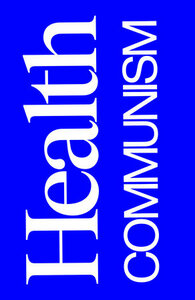Take a photo of a barcode or cover
This book is an absolutely flawless takedown of the notion that healthcare can be “fixed” within the confines of our existing capitalist system. Capitalism only provides healthcare for one reason: to resuscitate the sick and get them back to work so that they can be further exploited by capital. What if you’re chronically ill? Disabled? You are SURPLUS. And therefore you must be profitably “managed” by the capitalist system until you are too expensive. Then you are disposed of, but only after capital makes a few bucks off of your burial. As long as this is the foundation on which our “care” is provided, it will always be broken and the poor will always be left behind.
Took me a year and a half but I finally finished this book! I used to listen to the authors' superb podcast (Death Panel) all the time. Health Communism is a thought-provoking and fascinating exploration of the relationship between capital and health. Some parts of this book are really fantastic (the thesis, the background/exposition/history chapters examining how capitalism conceptualizes health, disability, madness, etc. to extract value and perpetuate oppression), but overall I wished there was more discussion and analysis. Most of their points would have benefitted from more substance-- without it, a lot of the book comes across as proselytizing. I also wish the authors spent more time examining the relationship between illness/disability and racism, classism, sexism, etc, as there's a lot to say. Not a disappointing work by any means, but a bit rushed. Curious to see if Adler-Bolton and Vierkan follow up on this with any additional publications. 3.5 stars and I highly recommend Death Panel.
challenging
dark
hopeful
informative
reflective
medium-paced
informative
medium-paced
informative
medium-paced
informative
reflective
The things that were most interesting about this book were unfortunately the things that were not even in this book - the bibliography and notes, the topics raised, and all-too-quickly dealt with.
It gave me lots of input with regards to further readings I want to do, but if someone asked me what my takeaway was from this book specifically, I'd just gesture vaguely. I simply expected more from a book with a consciously "big" title like that (title-wise, it should probably rather be called "Illness Capitalism," though, because delineating the connections between illness/health and capitalism is more what it does than actually going deep into the idea of Health Communism).
Aside from that, a highly repetitive writing style is pretty much a pet peeve of mine.
It gave me lots of input with regards to further readings I want to do, but if someone asked me what my takeaway was from this book specifically, I'd just gesture vaguely. I simply expected more from a book with a consciously "big" title like that (title-wise, it should probably rather be called "Illness Capitalism," though, because delineating the connections between illness/health and capitalism is more what it does than actually going deep into the idea of Health Communism).
Aside from that, a highly repetitive writing style is pretty much a pet peeve of mine.
informative
fast-paced
challenging
informative
reflective
fast-paced
don't pick this one up if you ever want to feel joy again.
but more seriously, i appreciated the historical context parts of this more than the more academic conversations. there was just a lot trying to be covered in a short time.
but more seriously, i appreciated the historical context parts of this more than the more academic conversations. there was just a lot trying to be covered in a short time.
challenging
informative
slow-paced







